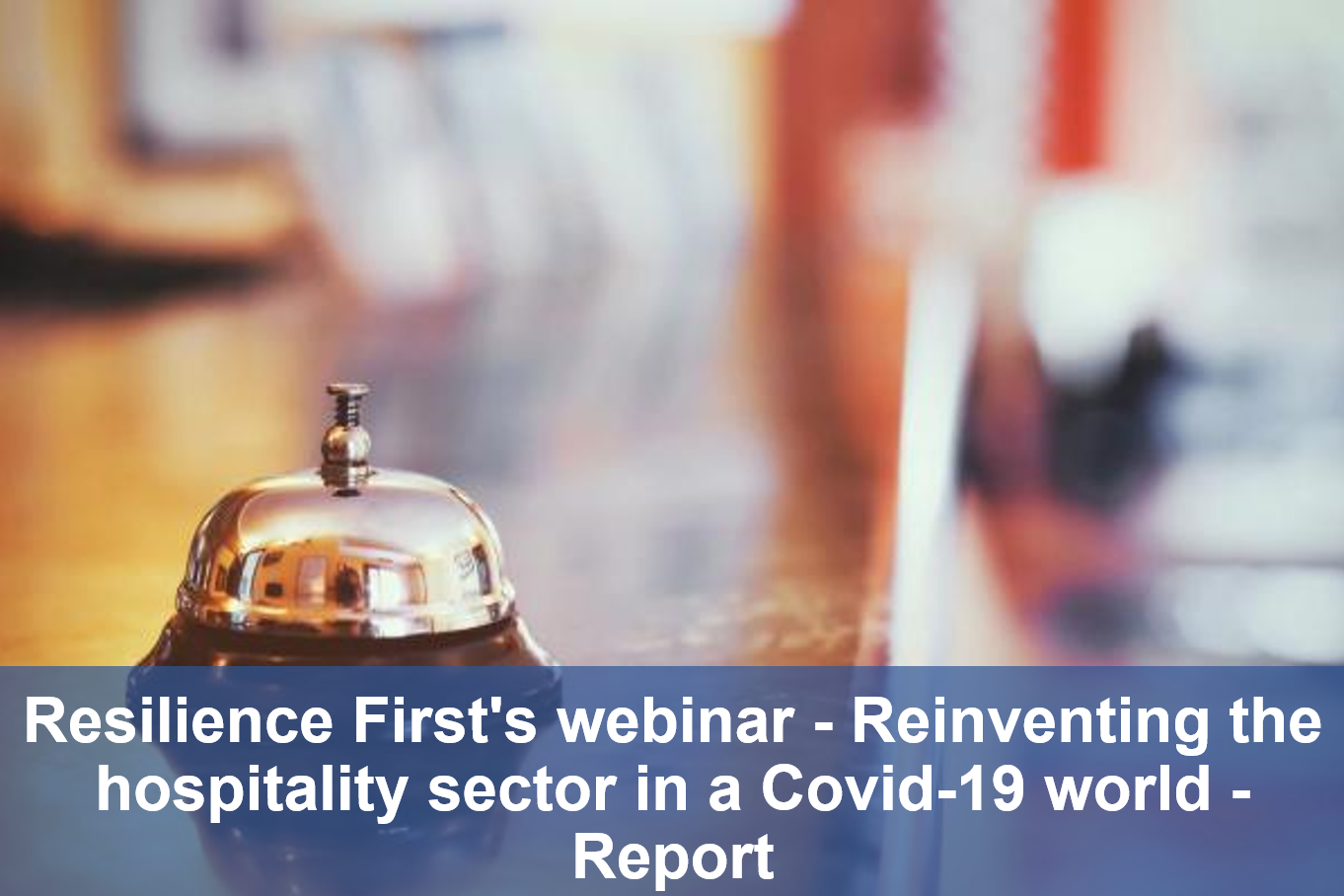At its most recent event (Futureproofing the Hospitality Sector on Wednesday 16 March), Resilience First invited experts to review the latest pressures on the UK hospitality sector and discuss what the sector requires to enhance its resilience and meet the pressing challenges it faces.
Two years on from the UK’s first lockdown, the hospitality sector remains at the forefront of major pressures when one considers the global uncertainty the pandemic continues to generate, the labour and supply fallouts from Brexit, climate change, and now the conflict in Ukraine.
Around 10% of hospitality businesses in the UK were lost during the pandemic with revenue dropping for operators by around two-thirds. Many of these businesses are small, independents in local communities which survived through the pandemic with government support and through their own adaptability. Whilst there has been recent growth in our city centres, footfall remains lower than pre-2020 levels. At a time when the sector hoped to start to see recovery, new pressures, many borne from the Russia-Ukraine conflict, will severely test the resilience of the sector further. These pressures include: energy and food costs, wage inflation, record high vacancies, and possible decline in consumer confidence.
Inevitably, more hospitality businesses in the UK will be lost and the coming weeks are critical for the future of the industry.
Mike Rooney, CEO of Resilience First said:
“The hospitality trade is a critical component of the business community across the UK, particularly in city centres. Many hospitality businesses showed remarkable resilience during the pandemic and were incredibly agile and adaptable during the periods of restrictions and lockdown. Any further stresses placed on the sector will inevitably affect growth and the UK’s economic recovery. Our city centres will need clear policy on future planning and development if they are to survive and thrive. Resilience First will be working closely with our members on developing resilience policy for city centres and offering support and guidance for businesses.”
Jean Devlin, Partner at Control Risks, said:
“The pandemic and its effects are not over yet. Infection rates are high, currently, although with vaccination and improved treatments, lockdowns are less likely. Whilst the economy has picked up, activity in the sector remains below pre-pandemic levels and disruption to business continues. The unique nature of the UK economy, based on social consumption, means that the effects on the economy as we moved through the pandemic and, hopefully, recover from this, have been different from other European countries. All, however, are affected by more recent inflationary risks.”
Kate Nicholls, CEO at UKHospitality, said:
“The margins available to businesses already on the brink are limited. Spiralling food costs disproportionately affect small local premises, like fish and chip shops, often in communities of existing greater deprivation. They cannot introduce significant price increases and are forced to absorb higher costs. Extending the lower rate of VAT, extending business rates relief, and extending loan recovery schemes could ease the current and developing cashflow crisis for businesses in the hospitality sector and prevent more of these failing.”
Sacha Lord, Night-time Economy Advisor for Greater Manchester, said:
“Inevitably current pressures will lead to renewed business failures with job losses in the sector and the next few weeks are a critical period. The industry will absorb the stress in the coming weeks as best it can, but staff welfare and mental health must be given the prominence that it now deserves and be a key factor at this time.”





